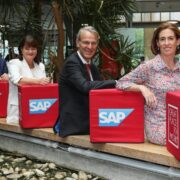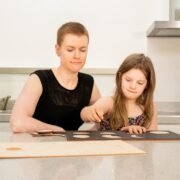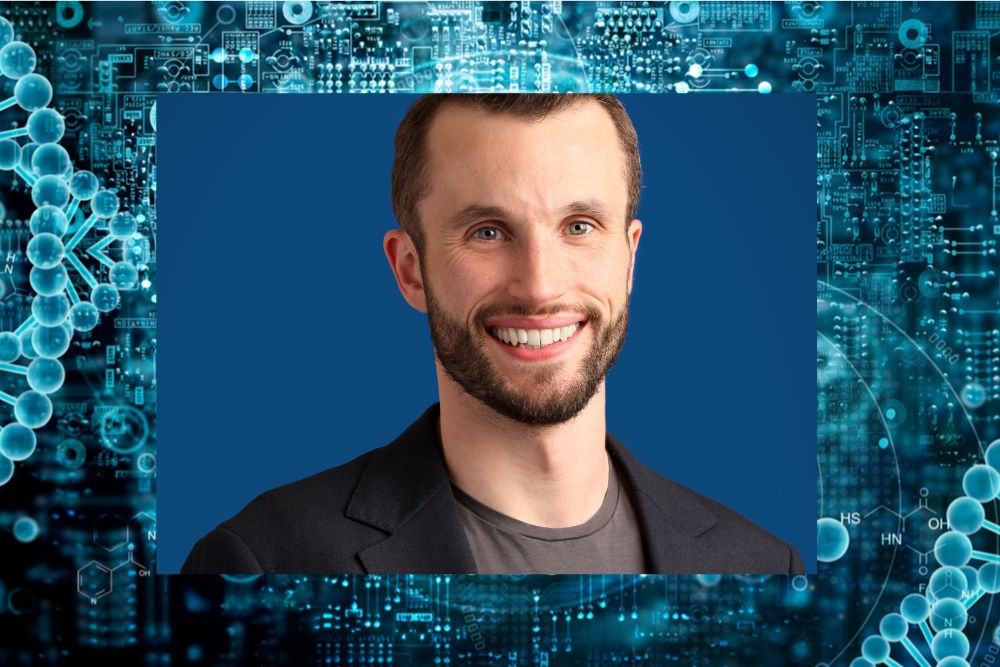Cork start-up CergenX is using recent advances in AI for the early detection of abnormal brain activity in babies at birth.
CergenX aims to improve brain health monitoring in newborns by developing algorithms for screening all babies at birth for abnormal brain activity.
“Today, EEG (electroencephalogram) is the gold standard in assessing brain function in new-borns. It works by measuring tiny electrical impulses in the brain,” explained Jason Mowles, co-founder and CEO.
“Early detection of brain injury is key to improving long-term outcomes for babies”
“Unfortunately, EEGs can be expensive, complex to read, time consuming to set up, and very often there is a shortage of trained specialists available to interpret the results. It is therefore not possible to test all new-born babies.
“So why is this important? We know that five in 1000 new-born babies may have some form of brain injury at birth. Many of these babies go undetected and can often present at a later date with developmental challenges (18 – 24 months). All the research tells us early detection of brain injury is key to improving long-term outcomes for babies.
“There are treatments available, but we need to know which babies to treat. Early intervention by medical professionals can improve outcomes for newborns. There are approximately 140m births in the world annually,” said Mowles.
How CergenX works
Cergenx is developing software to screen for abnormal brain activity in all babies at birth.
“To do this we are using artificial Intelligence (AI) algorithms to detect abnormal brain activity. We have a large brainwave databank to train the algorithms. Recent advances in AI mean it is now possible to do this.”
Mowles said the algorithms are a screening tool, not a diagnostic tool. “The algorithms will not replace doctors’ expertise, they will augment it. We are augmenting the clinical exam of new-born babies to give more information about brain function.
“Our software will be embedded on a manufacturer’s devices. The device will have a very simple user interface where the results can be easily interpreted; for example, a traffic light system where red means refer the baby to a physician for further investigation and/or analysis (e.g. Full EEG, MRI, CT, etc.). Ultimately, our ambition is to screen all infants at birth by using our new-born brain screening software.”
Timing is everything
The company has three co-founders: Jason Mowles, CEO; Dr Geradline Boylan, chief science officer; and Sean Griffin, chief technology officer.
Dr Geraldine Boylan is a Professor of Neonatal Physiology. She founded the INFANT Research Centre, at University College Cork (UCC), a research centre focused entirely on pregnancy, birth and early childhood. Both Ger and INFANT have been at the forefront of new-born brain research since it was established. Ger’s ambition is to convert this research into technologies that can be implemented to improve outcomes for new-borns.
“Over the years, Sean and I formed the view that between the three of us, we have the appropriate skills and expertise in the new-born brain, AI, commercialisation, software development, finance, funding and regulation to help Ger achieve this ambition,” Mowles said.
“Eventually, the timing was right for Sean and I to do something new and challenging from a career perspective. This is an extremely exciting and rewarding and we have a real opportunity to do something to make a difference.”
A buoyant ecosystem
Mowles believes the Irish start-up ecosystem is reasonably buoyant at the moment.
“There is a lot of advice and support out there. We are an Enterprise Ireland High Performance Start Up (HPSU) company and they have been very supportive. We also found the Cork BIC to be very supportive.
“There are a number of universities active in the start-up/spin-out space. There are also a number of people willing to work in a start-up as they offer different challenges, opportunities and rewards versus traditional employment opportunities.
“We recently raised €800,000 in seed funding and we are funded well into to next year. While we are not raising funds at present that doesn’t mean it is not on our radar. The funding life cycle can be long and challenging and executing our ongoing funding strategy remains one of our key priorities.”
Mowles echoes a sentiment that many founders say they encounter when they embark on their start-up journey. “One of the biggest lessons we have learned is everything takes a lot longer than you originally thought it would.
“We completed a spinout with UCC last year and a seed funding round in Q1 this year. These processes can be legally intensive and require multiple iterations of various documentation. Be patient and work your way through them.”
To stay agile, the CergenX team works remotely and therefore use a number of cloud based technologies that allow it to collaborate day to day. “We use a number of online tools including video conferencing, Slack, Gsuite, AWS, Xero, etc These tools allows start-ups get up and running for a relatively low investment.”
His advice to fellow founders is to actively look for and seek advice.” Seek advice from experts in your sector and related sectors. Talk to as many people as you can. Get their insights.
“I would also say, keep it simple. Find a way to explain what you are doing in manner that can be easily understood by everyone.
“Stay focused. It’s very easy to get side tracked. Agree short, medium and long term objectives for your business and ensure all decisions are taken in the context of progressing these objectives. It’s also important to be able to pivot – don’t be afraid to evolve your business objectives as new information emerges.”
Main image at top: Sean Griffin, CTO, Geraldine Boylan, CSO, and Jason Mowles, CEO of CergenX





